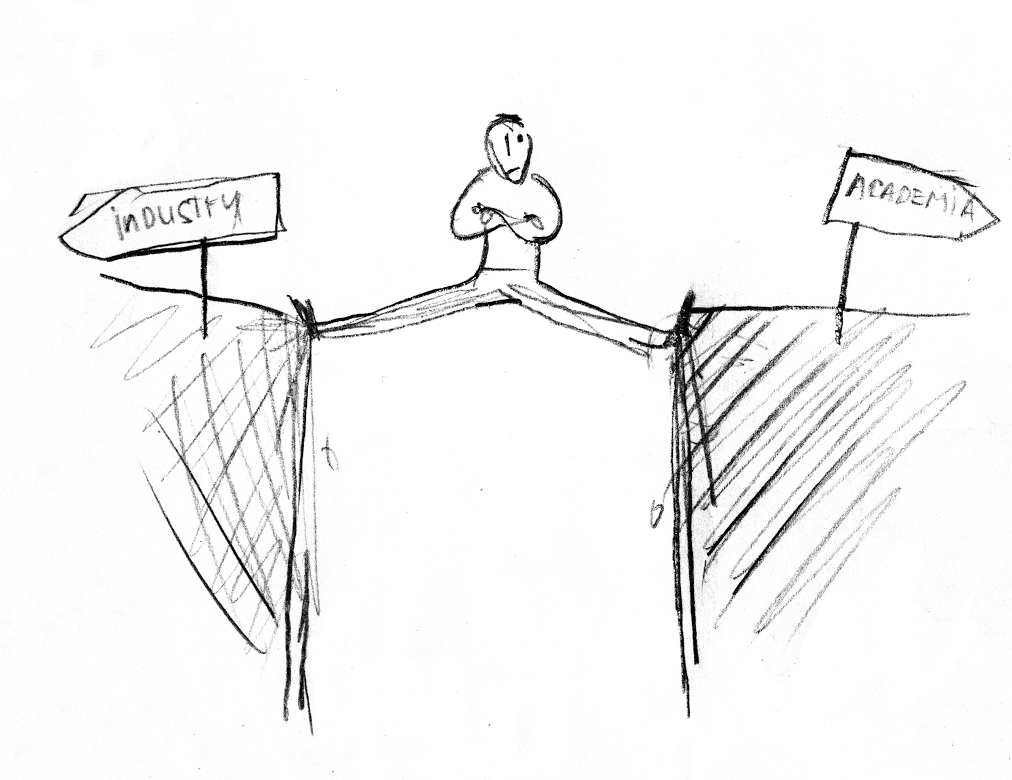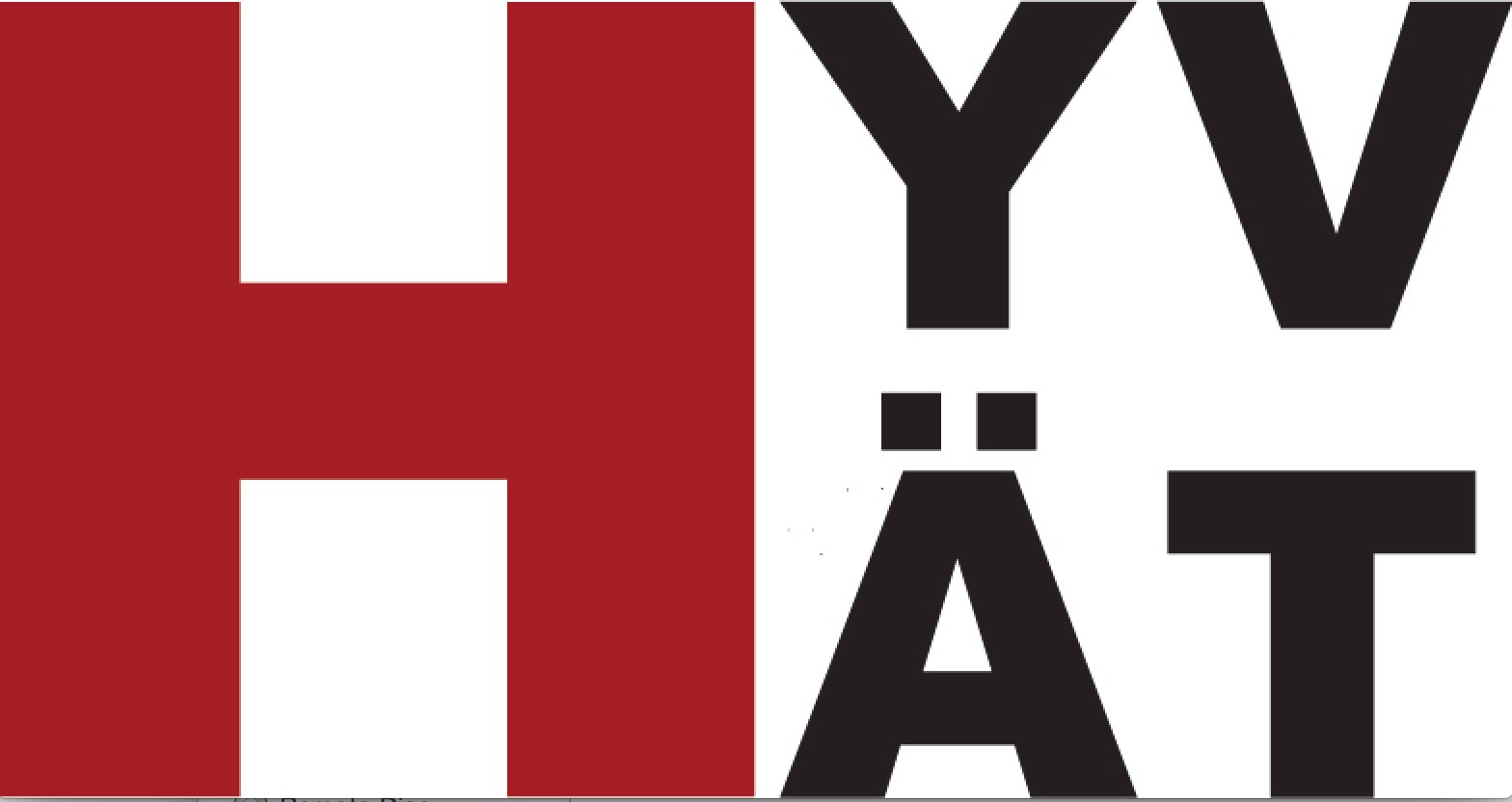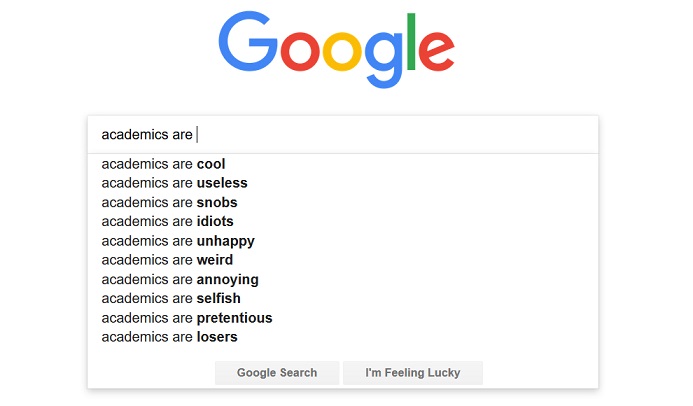We’d like to introduce the first guest writer on our blog, Daria Gritsenko, who is a postdoctoral scholar in environmental policy at the University of Helsinki and the founder of Wildcards, an online community that promotes transitions between academia and industry.
Daria’s text is a brief summary of the recent panel discussion “Tutkijat ja Uusi Työ” (Researchers and the New Work) where she acted as the moderator. It was organized 10 Jan 2017 by Allegra Lab Hki in cooperation with the Wildcards community as a part of the Akateeminen Vartti event series in the pop-up space of Basso Radio in Helsinki.
She also recently published a book called “Changing Hats: A book for academics looking beyond academia”, in which she explores the intricacies of transitions between academia and industry. A free sample chapter of the book is available at www.wildcards.me/book.
Some questions and answers about academics, their research, and academia-to-industry transitions in the context of “new work”.
Q: What is this ‘new work’?
It has become a commonplace to say that the nature of work is changing. Global connectivity, automation, artificial intelligence, new media, and other technological advances change the ways we think about work as well as the notion of what constitutes work. The impact of technological change on employment is visible as the skillset required in the workplace is constantly changing. The most desirable qualities for the future are adaptability, skill updating through continuous learning, learning by doing, mobility and capacity to tolerate uncertainty. In fact, it seems like all these skills researchers acquire during their PhD training. In theory, PhD graduates shall be the best fit for the workplaces of the future. In practice, this transformation is incremental and most workplaces are changing slowly.
Q: What is the biggest difference between academic and non-academic work?
Universities are very loose organizations where everybody has their own agenda. Outside academia, organizations are driven by business goals. It does not matter if you personally find a project interesting or relevant – it has to benefit the organization as a whole and help it moving towards its objectives. In a company, your superior or manager can come and tell that everything that you have been doing for the past few months will be terminated and from tomorrow you have to start from scratch working on something new. As an employee, you have to accept this, rather than defend your old project. For academics, this is a difficult situation and many companies are aware of this. In academia, critique is an essential part of the method, hence people are often very defensive. One has to defend their ideas, their papers, their arguments all the time, this is a crucial part of the game. You need to believe in what you do and spend a lot of energy and brainpower in developing elaborate ways of protecting your work from critique, proving yourself right.
Q: Should writing a PhD be considered as work experience?
Yes, it is certainly work experience. The question is only whether this work experience can qualify a person for a mid- or senior-level position. One skills that most PhDs are lacking in comparison to their industry-employed peers is people management experience. At the same time, most mid- and senior-level positions presuppose managing at least a small team. That is why for many PhD graduates it would be reasonable to apply for entry-level positions. This means, however, that they will compete with recent master’s programs’ graduates – and will need to find a way to explain the value of the PhD experience as compared to other fresh-out-of-college graduates.
Q: Does a PhD degree add value to your job application?
Consider a situation when you have a company that opens a position and receives two applications. Both candidates graduated from the same master’s program five years ago. Thereafter, one of them went on writing a PhD and another went to work in a company. Now, both of them apply for the same job. The question the hiring manager will need to decide who is more suitable for the role. For some type of jobs, the one with industry experience will be more suitable, for others the candidate with a PhD experience would be a better fit. Having defended a PhD does not make you a better candidate for most jobs.
Q: What is the best strategy for job-hunting outside academia?
There are a few strategies. First of all, there is a difference between the public and private sectors. Understanding this difference is important to devise the job-hunting strategy. In many European countries, including Finland, the public sector has been shrinking substantially, and thus landing a job in the public sector can be difficult as there are only very few jobs available. The situation is different in the private sector. Jobs are plenty and the competition for best talent is tough, but there is a clear divide between tech-jobs, where there is still a lack of specialists, and all other jobs. In any case, the chances that you will come across a job advertisement that would speak directly to you and your skillset are slim. PhD-level professionals shall be prepared to approach the companies and offer their skills, a new job can be created if a company and a professional can together identify what is needed for the company and how this particular person and their skillset can bring the company forward. Do not expect to be found.
 Q: Can innovation still be created at the universities? Or is it now gone to companies?
Q: Can innovation still be created at the universities? Or is it now gone to companies?
This is actually quite meaningless question. Of course, there is innovation at the university. And in companies, and elsewhere. Wherever there are people attempting to solve problems, there is potential for innovation. But this is an important question, in a way, since the value of university research has been under attack lately, especially of research that does not translate into immediate marketable ideas or even products. It is a separate discussion, what do we as a society expect from the universities and which function will they perform in the future. In any case, it does not help anyone to draw hard distinctions between academia and everything else, as academia is in fact a part of this ‘everything else’, it is in a constant dynamic interaction with other spheres of life. People who work in academia do not have different genes, they can work in any other place, too. Coming back to the initial question, some academics are very innovative, others are not. We shall aspire a more unified picture of the world, rather than building walls or drawing hard lines.
Q: Should we concentrate on doing ‘relevant research’ to increase our chances for employment?
Definitely! The only problem is, that we cannot so easily assess what is ‘relevant research’ and what is not. For instance, some twenty years ago Islamic Studies seemed like one of those ‘world-culture-nice-to-know-humanities-subjects’’, whereas now we have a lack of specialists as demand for their expertise has increased drastically. Developing a solid and enduring research program takes time. We need all kinds of research – and time will show what is relevant to whom and when.
The participants of the panel discussion were Ulla Tapaninen, a senior specialist at the City of Helsinki and a PhD in industrial economics, Tobias Bräutigam, a counsel at Bird & Bird and a researcher at the Faculty of Law at the University of Helsinki, Lotta Haikkola, a PhD in sociology and a postdoctoral scholar at the University of Helsinki studying the questions of work life and unemployment, as well as Susanna Hast, a singer-songwriter, dancer and a scholar who combines art and science in original ways.

